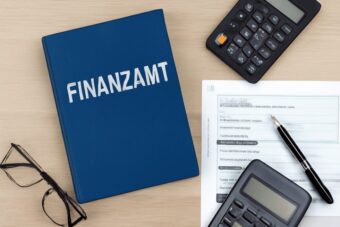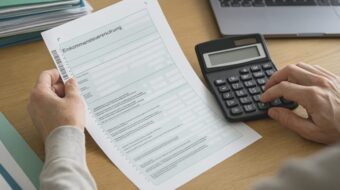In 2025, cash remains a vital part of many small businesses, particularly among solo entrepreneurs, tradespeople, and creative professionals. Whether it’s payment for coaching sessions, material purchases at local suppliers, or mileage expenses reimbursed in cash – these transactions are convenient but can quickly become a legal liability if improperly documented. Bookkeeping errors in cash dealings often lead to audits, rejected deductions, or even penalties from tax authorities. That’s why every self-employed person must understand the key principles of compliant bookkeeping for cash payments — reports G-Business.de.
When does a cash-based business activity trigger tax obligations
One of the most common misunderstandings among freelancers is the assumption that small-scale cash earnings are “harmless” or exempt from business registration. But in fact, whether your work is classified as a freelance profession (under §18 EStG) or a commercial activity (under §15 EStG) fundamentally changes your obligations — particularly for tax, VAT, and trade registration.
You must register your business as soon as you meet any of the following criteria:
- Regularity: If you receive cash for services or goods more than once or on an ongoing basis.
- Profit intent: If the activity is not purely hobby-based and is clearly aiming for income.
- Market presence: If you promote your work via a website, local ads, flyers, or social media.
- Type of service: Selling goods, offering workshops, or collecting fees without issuing invoices raises red flags.
- Earnings threshold: Once you earn over €410 per year, no matter how small or infrequent, registration becomes mandatory.
Failing to register your business, even for a side hustle like offering weekend workshops or selling on flea markets, may lead to backdated tax bills, the loss of your small-business status, or fines of up to €5,000.
Examples of common cash-based activities and their risks
| Activity | Risk Level | Notes |
|---|---|---|
| Selling at flea markets | High | Especially risky if done regularly |
| Teaching music lessons for cash | Medium to High | Includes risk if advertised online or via flyers |
| Selling art without invoices | High | Especially risky if sold in public or online marketplaces |
| Hosting workshops paid in cash | High | Each session can be taxable even as a one-time event |
| Private tutoring paid in cash | Medium | Risk increases with repeat clients or public promotion |
How to properly document cash transactions in 2025
You do not need a full POS (Point of Sale) system to be compliant — but you do need a structured approach to cash bookkeeping. Every income and expense must be recorded with a receipt or proof of purpose, in accordance with §146 AO and the GoBD (principles of proper bookkeeping).
Examples of proper documentation
| Transaction Type | Required Documentation | Tax Implication |
|---|---|---|
| Cash received for coaching | Signed receipt with date, purpose, and amount | Taxable income, may be subject to VAT |
| Cash purchase of office supplies | Retail receipt or internal note | Deductible expense, input VAT applicable |
| Cash paid for travel to a client | Ticket + note on purpose of travel | Deductible business travel expense |
| Tips received and kept | Internal receipt with explanation | Taxable income |
| Tips given to staff in cash | Signed confirmation with name and amount | May be subject to wage tax |
| Cash withdrawn from business funds | Internal record, signed and dated | Not deductible, must be documented separately |
| Cash loss (e.g., incorrect change given) | Internal explanation with context | May be deductible under specific conditions |
| Cash paid for a client lunch | Detailed restaurant receipt + meeting notes | 70% deductible with proper justification |
The most common mistakes — and how to avoid them
Even small businesses can be penalized for sloppy record-keeping. Common errors in 2025 include:
- No receipts for cash sales or expenses
- Handwritten logs without supporting documents
- Unclear private vs. business transactions
- Incomplete tracking of employee-related cash payments
- Mixing cash and card payments without notation
The tax office may estimate your income under §162 AO if your documentation is deemed incomplete — often increasing your taxable base by 10–20%.
To stay safe:
- Use consecutively numbered receipts
- Log all cash transactions daily (not retroactively)
- Keep all documents for at least 10 years
- Separate private cash flows from business funds
Digital solutions for cash bookkeeping
Modern freelancers can now use digital tools to keep a compliant cash ledger without a full-scale cash register system. Tools recommended for 2025 include:
- Lexoffice Kasse – Great for self-bookkeepers, integrates with EÜR
- Kontist – Offers digital receipt uploads and banking in one
- FastBill mobile – For on-the-go documentation via smartphone
- Paper ledger – Still allowed, if used properly and consistently
The key is not the tool, but how you use it: your records must be complete, transparent, and immutable.
Cash payments will still be legal and useful in 2025. But every self-employed professional must treat them with care. Track every cent, document every service, and know when your business activity triggers tax obligations.
Stay connected for news that works — timely, factual, and free from opinion — and insights that matter now: What is a Finanzamt and How to Register for Taxes in Germany


